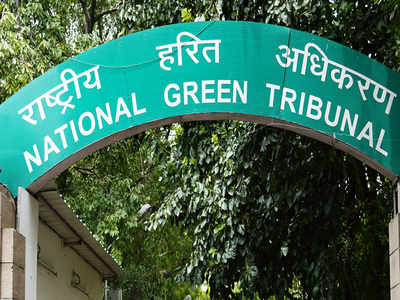The Hindu 15.06.2013
In Selaiyur, methane from sewage becomes cooking gas

Residents of Bharat Nagar in Selaiyur now have access to free, eco-friendly gas for their kitchen use.
Tambaram
municipality on Friday launched a bio-methanation plant that will
produce gas from sewage generated in a public toilet. This comes in the
wake of a good response to the municipality’s novel project, ‘Namma
Toilet’ to improve sanitation in public places.
The
methane gas will serve as fuel for 12 stoves which can be used free of
cost by residents. The facility was formally launched at a function on
Friday morning at Bharat Nagar in ward no. 21 of the municipality.
A marginalised area
In
1988, Rajiv Gandhi attended the Congress party’s session in Maraimalai
Nagar. To widen Grand Southern Trunk for his convoy, people living on
the margins were evicted and provided alternate accommodation in Bharat
Nagar. Of the 292 households in this locality, 135 do not have
individual toilets to this day.
In 2003, a public toilet was constructed at a cost of Rs. 10 lakh, but was shut down two years later due to lack of maintenance.
“All
of us are daily wage earners. Our main grievance has been the lack of
toilets. The women especially have been subject to severe inconvenience
and embarrassment,” said R. Meena, a Bharat Nagar resident for 25 years.
A decision to spruce up the toilet was taken recently and it was suggested that a bio-methanation plant be added.
Municipal
officials said separate toilets for women and men had been created and
the sewage generated from them would accumulate in an elliptical
digester sunk below the ground.
“The methane gas,
generated naturally from the sewage, is directed through an overhead
pipe which is then routed through smaller pipes to 12 conventional
stoves in a separate kitchen located within the complex. It is free from
malodour,” an official said.
The remaining sludge
would, for the present, be flushed out through stormwater drains and
linked to distribution pipes once the underground drainage project is
completed here. User charges of Rs. 50 per family per month would be
collected for the toilet facility and this revenue would be spent on its
maintenance, the officials said.
K. Rajeswari,
Meena’s neighbour, said, most families always ran out of their monthly
quota of kerosene. “The liquefied petroleum gas cylinders are beyond our
means. The free gas at the kitchen is a huge benefit to all of us,” she
said.
Safe, easy to maintain
According
to officials, there were no risks involved in the operation of the
plant. The gas generated would be enough for 30 families to use the
stoves for three hours each in the morning and evening, every day. In
addition to the sewage, discarded vegetable waste from households and
markets would be collected, shredded and fed into the digester tank,
they said.
Officials added that with the spruced-up toilet in place, open defecation would be eliminated.

